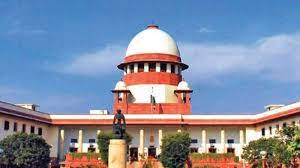
The Supreme Court of India has allowed couples the right to divorce based on "irretrievable breakdown of marriage" under Article 142 of the Indian Constitution. This judgement applies to circumstances in which both spouses seek a divorce by mutual consent or if one partner seeks a divorce despite objections from the other.
| Article and Schedule Quiz | Start Test! |
Factual determination and objective evaluation necessary:
Before awarding a divorce on the grounds of "irretrievable breakdown of marriage," the court stated that it must be fully convinced and satisfied that the marriage is beyond salvation, emotionally dead, and completely untenable. The factual determination and evaluation must be objective and firmly established.
Discretionary power under Article 142:
Article 142 of the Constitution empowers the Supreme Court to give precedence to equity over law in the pursuit of “complete justice” in a matter. However, under Article 32, the court cannot be approached directly to seek divorce on the grounds of "irretrievable breakdown of marriage." Granting a divorce on these grounds is not a right but a discretionary power to be exercised with great care and caution.
Removal of the cooling-off period:
The verdict removes the mandatory six-month cooling-off period between the first and second motion for divorce in mutual consent divorce petitions under the Hindu Marriage Act (HMA). The court may also set aside and quash other proceedings and orders, including criminal cases and First Information Reports, based on the settlement between the parties.
Factors for determining “irretrievable breakdown of marriage”:
The court has presented grounds to determine "irretrievable breakdown of marriage" as examples. The exercise of this discretionary power must be based on the factual matrix in a particular case, evaluated objectively.
Ending agony, suffering, and torment:
The court held that a hyper-technical view in cases of “irretrievable breakdown of marriage” is counter-productive as the pendency of such cases causes pain, suffering, and harassment. The court’s duty is to ensure that matrimonial matters are amicably resolved to end the agony, affliction, and torment caused by such disputes.